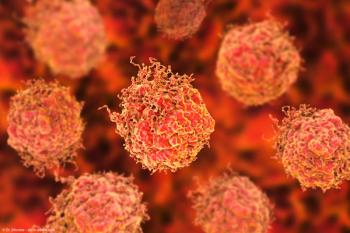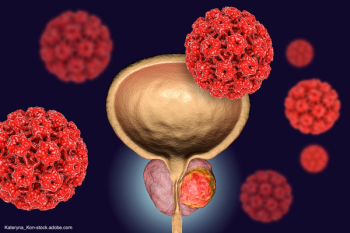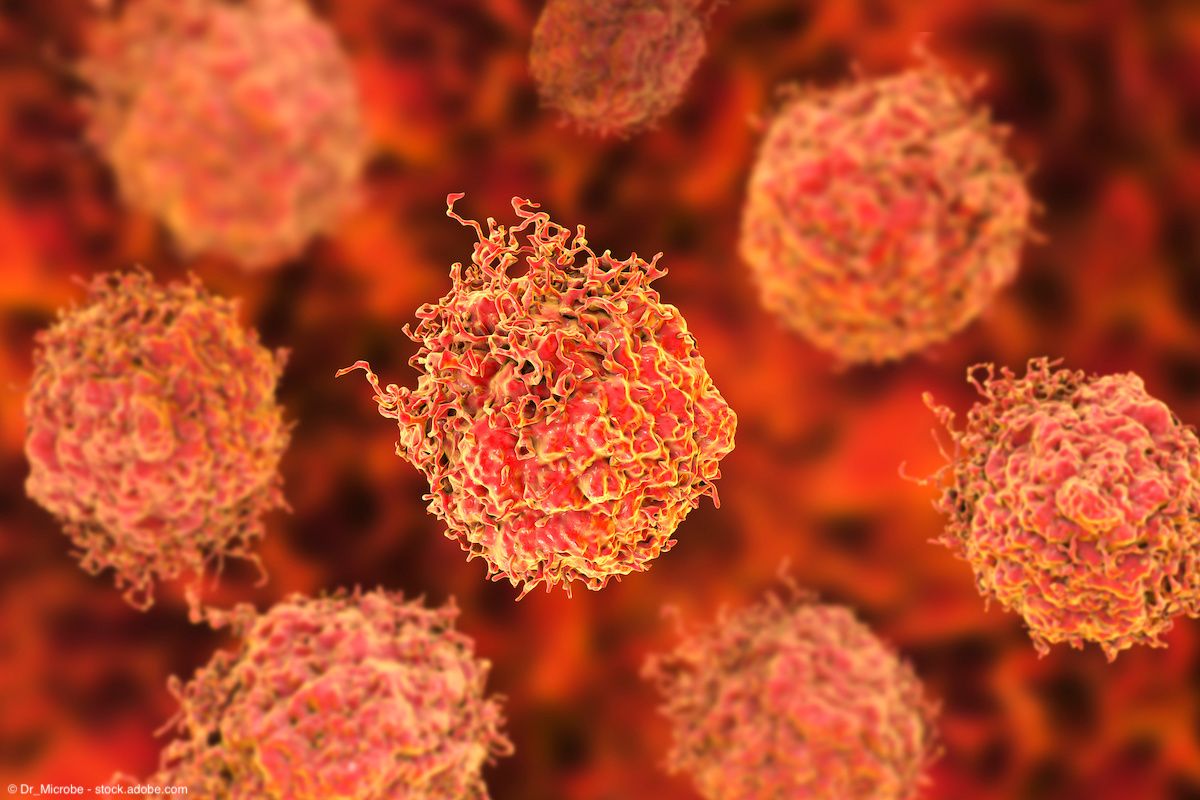
Genomic Testing
Latest News

Latest Videos

CME Content
More News

On an episode of Cleveland Clinic’s Cancer Advances podcast, host Dale Shepard, MD, PhD, talks with Omar Mian, MD, PhD, about emerging molecular biomarkers for genitourinary cancers.

According to the survey, 79% of Black men know that genetic information can help improve prostate cancer outcomes, yet 33% indicated that they would be unwilling or uncertain to provide DNA samples, even if it meant finding new treatment options.

Circulating tumor DNA is showing promise as a tool to guide decisions on treatment intensification and de-escalation in patients with renal cell carcinoma.

Translocation renal cell carcinoma is a rare type of RCC that is typically characterized by gene fusions involving the MiT family of transcription factors including TFE3, TFEB, TFEC, and MiTF.

Notably, the study represents a 57% increase in the number of non-European participants compared with previous prostate cancer genome-wide association studies.

"All of our tools, including genomics and MRI, enable us to do a better job of risk stratifying [patients] to have a more appropriate shared decision-making discussion [about active surveillance]," explains David Morris, MD.

"ctDNA holds a unique position as it offers a molecular means to quantify the extent of residual disease burden," says Adanma Ayanambakkam, MD.

In a recent interview, Rohan Garje, MD, chief of genitourinary oncology at the Miami Cancer Institute, discussed the evolving paradigm with PARP inhibitors in prostate cancer.

“This is the first study in upper tract urothelial carcinoma to show that ctDNA may be used to refine clinical staging and prognosis in these patients prior to surgery,” says Heather L. Huelster, MD.

"In this study, we sought to evaluate the utility of a non-invasive biomarker—ctDNA—in predicting muscle-invasive and non–organ-confined staging of upper tract urothelial carcinoma," says Heather L. Huelster, MD.

The model may help identify patients with urothelial carcinoma who could benefit from PPARG inhibition through FX-909, a first-in-class small molecule inhibitor of PPARG.

“Our results provide molecular insights for potential therapeutic strategies to treat prostate cancer and other AR-involved diseases by targeting AR multivalent interactions,” said Zhijie “Jason” Liu, PhD.

"These tests, germline and tumor somatic testing, are extremely important and can no longer be ignored in the clinic when we see these patients," says Neeraj Agarwal, MD.

Alexandra Sokolova, MD, explains the importance of genetic testing for patients with high-risk localized and advanced prostate cancer, as well as for their high-risk family members.

The Invitae Common Hereditary Cancers Panel utilizes DNA taken from a blood sample to identify the presence of variants in 47 genes linked to an increased risk of developing certain cancers.

In patients with microhematuria, a positive result on the test was associated with a 5-fold increase in the risk of patients harboring bladder cancer compared with current metrics alone.

When compared with standard risk factors, only Decipher Prostate Genomic Classifier scores were independently associated with metastasis-free survival and distant metastasis.

This is the largest prostate cancer study that examined the exome, according to the researchers, who believe their findings can potentially inform the makeup of panels used for genetic testing in prostate cancer.

Data showed that the proportion of Black patients referred for genomic testing increased from 19% to 58% after the implementation of the precision medicine navigator.

The findings suggest that drug therapies targeting the NOTCH1 gene may serve as an alternative treatment option for patients with kidney cancer in whom surgery is not recommended.

Patients with mCRPC will be randomly assigned 2:1 to receive masofaniten/enzalutamide or enzalutamide alone.

“It’s exciting that now in 2023 we have 3 FDA-approved PARP inhibitors for the treatment of our prostate cancer patients,” says Joshi Alumkal, MD.

Joshi Alumkal, MD, discusses the phase 3 TALAPRO-2 trial, which supported the FDA approval of the combination of talazoparib and enzalutamide for patients with metastatic castration-resistant prostate cancer whose tumors harbor homologous recombination repair gene defects.

The approval of the olaparib/abiraterone regimen was based on an exploratory subgroup analysis of the phase 3 PROpel trial consisting of the 85 patients in the study with BRCA-positive metastatic castration-resistant prostate cancer.

Approximately half of prostate cancer patients with clinically actionable gene variants do not meet the NCCN guideline criteria for genetic testing, according to findings from the PROCLAIM trial.














